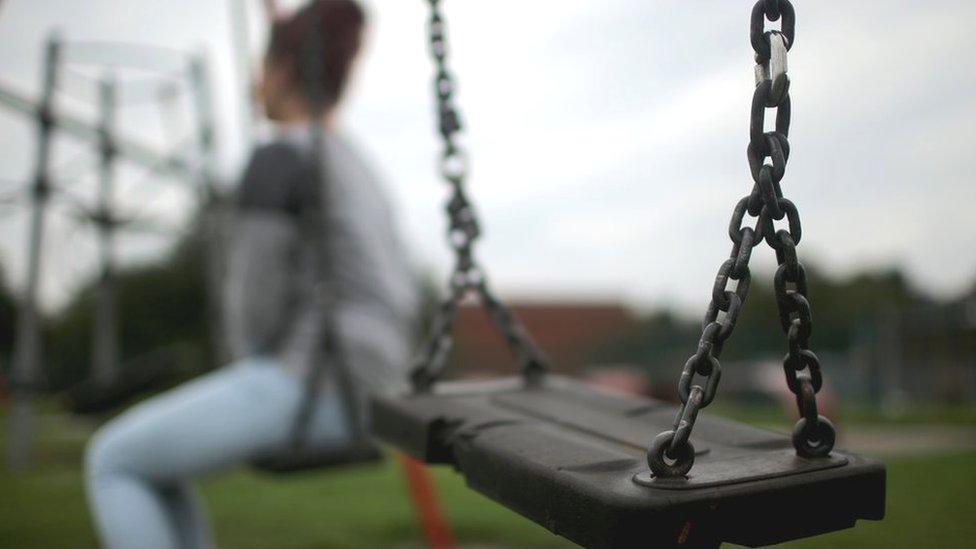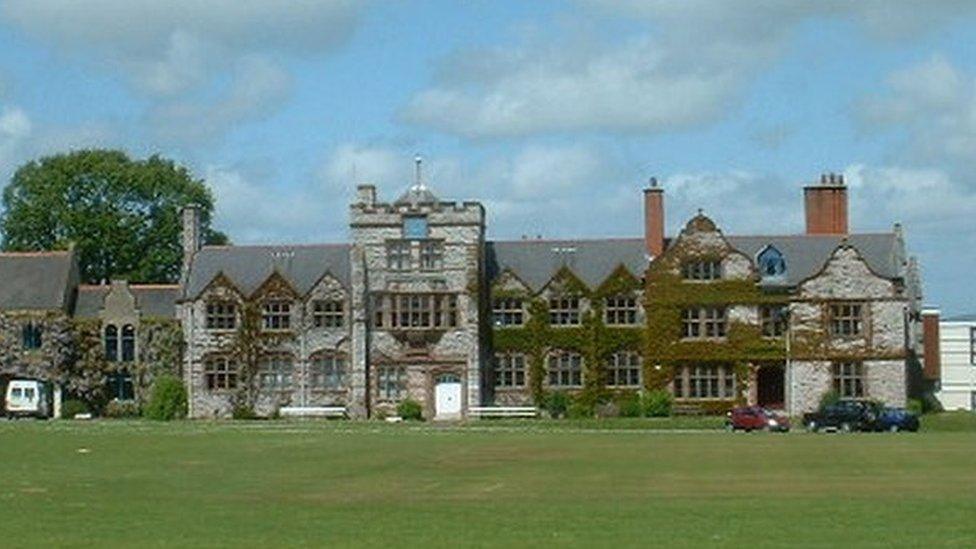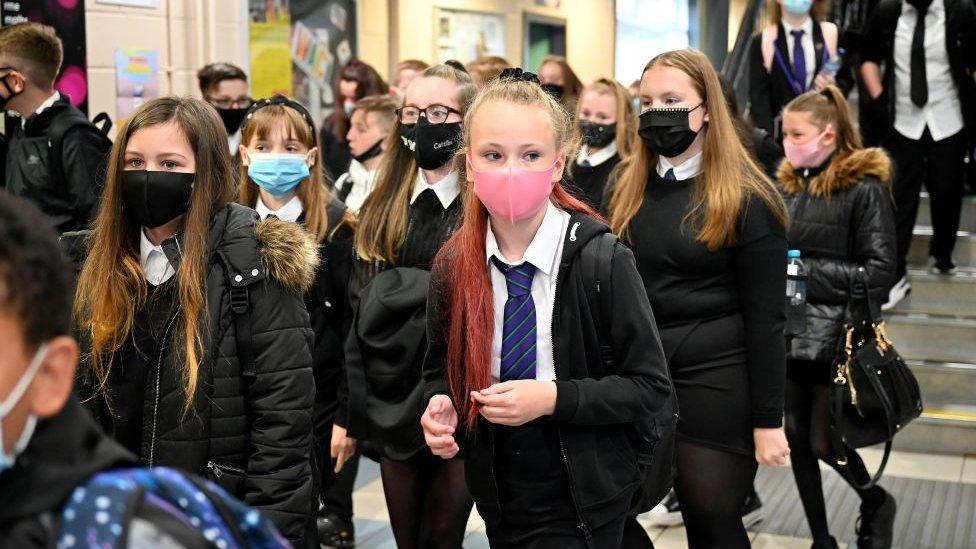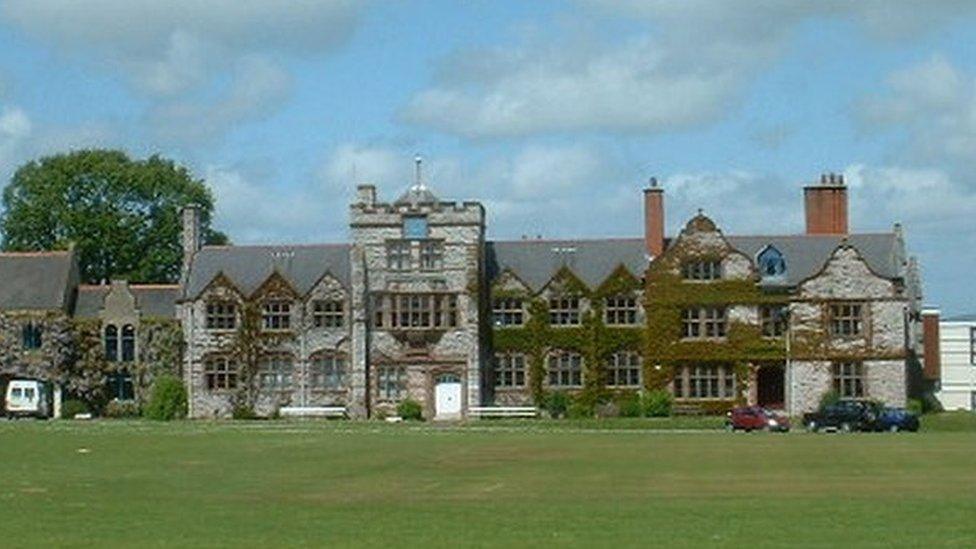Children face safeguarding risk from registration loophole, report says
- Published

Work is currently being done to estimate the numbers working with children who are not registered
A "loophole" means safeguarding risks are being created in Wales by unregistered people working with children, according to a report.
Experts on the Interim Youth Work Board, external called for change so everyone working with young people must register with the Education Workforce Council (EWC).
Currently, workers in certain settings such as independent schools and private organisations do not need to register.
Wales' education minister said he would respond, external to recommendations this year.
"Clearly, there are safeguarding risks here for young people, and for parents, carers, guardians and the public," the report says.
There are about 78,000 people registered with the EWC.
They fall into categories such as teachers and support staff at local authority-maintained schools and further education colleges, youth workers and those involved in work-based learning.
A youth worker generally means someone who has a qualification, and works in areas such as council or voluntary-led services with 11 to 25-year-olds, in youth clubs, or tackling issues such as homelessness or mental health problems.
However, those working with young people in settings such as housing associations, faith organisations and privately-run initiatives do not need to register.

Experts said services needed to be radically reformed to ensure they survived for all children to access in the future
Former children's commissioner Keith Towler chaired the board, which reported back to the Welsh government.
He said it was important youth work took place in a "safe space".
"When I've spoken with young people about the value of youth work, they always talk about having trusted relationships with their youth workers.
"That youth work provides someone who will listen and act on their concerns, provide advice and support and offer opportunities and fun things to do.
"Keeping young people safe has to be a priority for everyone but registration is also about improving and developing standards in our youth work practice," he said.

An inspectors' report in 2020 found Ruthin School did not comply with welfare, health or safety regulations
Last year, the head of a private school was dismissed after schools inspectorate Estyn found children were at risk of harm because of "safeguarding failures".
Toby Belfield of Ruthin School, Denbighshire, had been accused in newspaper reports of sending inappropriate text messages to six girls.
Inspectors later found the school did not comply with regulations on the welfare, health or safety of pupils.
At the time, children's commissioner Sally Holland said the situation highlighted "gaps" in the regulation of independent schools.
She also told an inquiry she was concerned Mr Belfield had set up an online school after his dismissal, and could not be struck off the teaching register because he was a non-qualified teacher.

Currently, staff in council-run schools must register, but those in private learning environments do not
Ms Holland has now called for change, and said: "Registration should be widened not only to cover all youth work practitioners, but also to cover student teachers and student youth workers, and to cover staff working in independent education settings."
She said youth work was "a vital part of the education landscape in Wales", but added: "The laws around registration to the EWC need changing to make sure that we strengthen the safeguarding of children and young people in all the places they access their education."
The panel of experts on the Interim Youth Work Board made a number of recommendations including developing a workforce plan for the sector and ensuring everyone is qualified to work with young people.
"Youth work services can be a lifeline for young people, especially those who are vulnerable, and it is vital that everything possible is done to ensure that staff and volunteers can be relied upon to keep their users safe," said NSPCC Cymru's policy and public affairs manager Viv Laing.
"We believe that a mandatory registration scheme, together with policy, procedures and regular safeguarding training, would have the potential to ensure a safe environment for young people in all youth work settings."
'Safety is paramount'
A "mapping" process commissioned by the Welsh government is currently exploring the number of people delivering youth work in Wales, including identifying gaps in those required to register.
It is being carried out by the Council for Wales of Voluntary Youth Services, and chief executive Paul Glaze said it was at a "very early stage".
"We are now about to embark on a 12-month research project with academic support, which will be a Wales-wide piece of work and something we are excited about," he said.
Education Minister Jeremy Miles said he would take action, ensuring registration and safeguarding for youth work "has parity with other parts of the education sector".
"We welcome the commitment by the minister to close the current registration loopholes for youth work staff identified in the report," said EWC chief executive Hayden Llewellyn.
"The safety of young people and learners in Wales is paramount and we look forward to working with the Welsh government and youth work organisations to resolve the current gaps."
- Published20 September 2021

- Published4 July 2021

- Published29 January 2020
